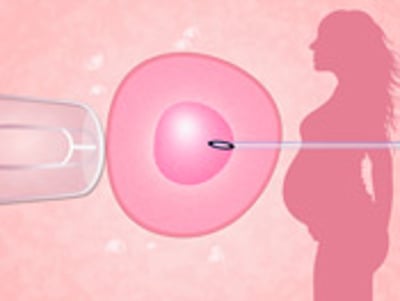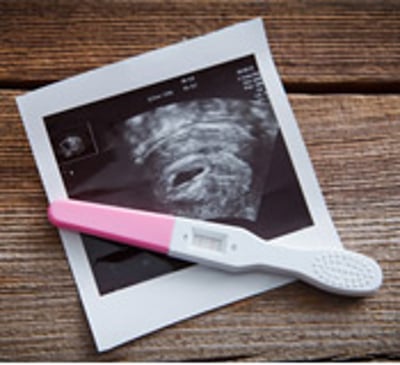FORCE's eXamining the Relevance of Articles for You (XRAY) program looks behind the headlines of cancer news to help you understand what the research means for you.
XRAY is a reliable source of hereditary cancer research-related news and information.
Learn more about the XRAY program
Categories Pregnancy & Fertility
Relevance: Medium-High


Strength of Science: Medium-High


Study : Breast cancer risk increases modestly after childbirth
Relevance: Medium-High


Strength of Science: Medium-High


Most relevant for: Women in their childbearing years
Does having children alter the risk of breast cancer? Women who give birth have a lower lifetime risk of breast cancer. However, newer data suggests that breast cancer risk increases immediately after childbirth. A study published in December 2018 examines data from the Premenopausal Breast Cancer Collective Group seeking to clarify this issue. (12/28/18)
Read More
Relevance: High


Strength of Science: Medium-High


Research Timeline: Post Approval


Study : Childbearing after breast cancer among young survivors
Relevance: High


Strength of Science: Medium-High


Research Timeline: Post Approval


Most relevant for: Young breast cancer survivors who wish to become pregnant
Women who are diagnosed with breast cancer as an adolescent or young adult often have not yet begun or finished childbearing. Researchers studied the impact of breast cancer and related treatment on birth rates and birth outcomes in young survivors. Overall, adverse birth outcomes were not increased for young survivors compared to women without cancer. However, women with ER-negative breast cancers had a modestly higher frequency of preterm and low weight births. The authors highlight the need for fertility counseling and potential fertility preserving methods prior to treatment. (5/10/18)
Read More
Relevance: Medium-High


Strength of Science: Medium


Study : Take your time, follow your heart: strategies for communication about family planning
Relevance: Medium-High


Strength of Science: Medium


Most relevant for: Young high risk women
When a woman is newly diagnosed with a BRCA mutation, she faces many risk management decisions. Although many of these decisions impact family planning, little guidance is available on how to communicate this information. This study examines female previvors’ advice on effective strategies for discussing family planning decisions. (03/28/18)
Read More
Article : Coping with the financial burden of breast cancer
Most relevant for: People diagnosed with breast cancer
U.S. News & World Report recently talked to three breast cancer survivors, including two young women, about how they handled out-of-pocket costs and other medical expenses after their cancer diagnosis. (Posted 1/4/18)
Read More
Relevance: High


Strength of Science: Medium-High


Study : Birth control and breast cancer risk among younger women
Relevance: High


Strength of Science: Medium-High


Most relevant for: Young women on, or considering taking hormonal birth control
On December 7, 2017 the New England Journal of Medicine published results from a study by Lina Mørrch of the University of Copenhagen and colleagues showing that hormonal contraceptives (birth control) increase the risk of breast cancer. The study is unique because it is one of the first to specifically assess the breast cancer risk associated with newer, low-dosage methods of contraception. The large and significant effort analyzed medical data of nearly 1.8 million young women in Denmark on average for over 10.9 years. Results were covered widely in the U.S. by many major media outlets, including the New York Times, USA Today, Forbes and Time. (12/14/17)
Read More
Article : Preimplantation genetic diagnosis and hereditary cancer
Most relevant for: people with an inherited mutation linked to cancer risk
Andrew Joseph’s piece for STAT, “A baby with a disease gene or no baby at all: Genetic testing of embryos creates an ethical morass,” focuses on preimplantation genetic diagnosis (PGD) and the emerging ethical issue in the field of reproductive medicine: What to do when patients seeking to get pregnant select embryos with DNA that could lead to a disease or a disability. (11/8/17)
Read More
Study : Pregnancy around the time of a breast cancer diagnosis does not negatively affect survival
Most relevant for: Young women diagnosed during or right after pregnancy and young survivors considering pregnancy after breast cancer
The number of women who become pregnant around the time of, or after a breast cancer diagnosis is increasing. However, it is unclear whether pregnancy around the time of a breast cancer diagnosis impacts survival. This recently published study demonstrates that the timing of pregnancy does not negatively affect breast cancer survival rates. (5/24/17)
Read More
Study : Does IVF increase a woman’s risk for breast cancer?
Most relevant for: Woman at average risk for breast cancer who have or are considering undergoing In Vitro Fertilization
In vitro fertilization (IVF) wasn't commonly used until the 1980s, so its long-term effects are mostly unknown. A new study suggests that the treatment does not increase a woman's risk for developing breast cancer. (8/23/16)
Read More
Relevance: Medium


Strength of Science: Medium


Research Timeline: Human Research


Study : Do BRCA mutations affect fertility?
Relevance: Medium


Strength of Science: Medium


Research Timeline: Human Research


Most relevant for: Women with a BRCA mutation who want to become pregnant
Age affects fertility. As women age, their ovaries release eggs that are not as healthy as those released in younger women. Fewer eggs are released each menstrual cycle as women age, making it harder for older women to become pregnant. Are women with BRCA mutations less fertile? Previous research suggested that BRCA mutations might affect women's fertility as she ages. A recent study found that BRCA1 mutation carriers may have slightly lower fertility than women without the same mutation, but more research is needed before this finding is useful for medical decision-making. (5/24/16)
Read More
Study : Effects of cancer diagnosis and treatment during pregnancy on the health and development of the child
Most relevant for: Women who were diagnosed with breast cancer while pregnant
Very little work has studied how a woman's cancer diagnosis and treatment during pregnancy affects her child. This study of women who were diagnosed with cancer while pregnant looks at their children at ages 18 months and 3 years. The study found no difference in general, cognitive, and cardiac development when compared to children born to healthy mothers. (12/08/2015)
Read More